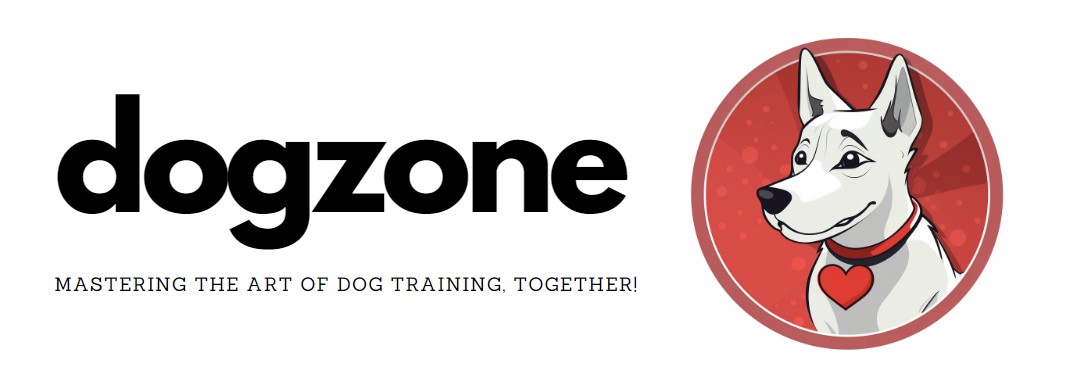If your dog is struggling with allergies or a sensitive stomach, you probably know just how frustrating it can be finding the right dog food.
That’s where hypoallergenic dog food comes in. These foods are specially designed to provide complete and balanced nutrition for dogs with food allergies or sensitivities.
But with so many options on the market, some of them REALLY expensive, it can be overwhelming figuring out what you should do?
In this guide we’ll cover the many aspects of hypoallergenic dog food, with tips on how you can solve your dog’s issues more cheaply than you think!
How to Choose the Best Hypoallergenic Dog Food
Finding the right hypoallergenic dog food for your furry friend can be overwhelming. Here are some factors to consider when selecting a hypoallergenic dog food brand:
- Factors to Consider:
- Allergies and sensitivities – Identify the specific ingredient(s) that trigger your dog’s allergies or sensitivities – your previous dog food is a great start – and look for dog foods which avoid those ingredients.
- Age and breed – Consider your dog’s age, breed, and activity level when selecting the appropriate hypoallergenic dog food brand. Keep in mind it doesn’t need to be a dry food, there are options with wet, raw, BARF, and homemade as well.
- Health conditions – If your dog has any pre-existing health conditions, consult your veterinarian for advice on selecting the right hypoallergenic dog food. They’ll probably recommend Royal Canin or Hill’s, but reading the ingredients may give you questions.
- Reading Ingredient Labels and Understanding Nutritional Value:
- Check the ingredient list for allergens and potential irritants such as grains, corn, and soy.
- Look for a balance of high-quality proteins, fats, and carbohydrates. Meat proteins are better than plant or grain alternatives, but you may need to avoid common meat allergens like chicken/beef/lamb.
- Ensure the hypoallergenic dog food meets the nutritional needs of your dog based on age, breed, and activity level. For a puppy you must feed a food suitable for the puppy phase.
- Finding the Right Balance Between Quality and Price:
- As a general rule choose the best quality hypoallergenic dog food that you can afford.
- Avoid cheap, low-quality dog food. These often contain fillers and low-quality ingredients that can be harmful to your dog’s health, worsening your problem, and possibly costing you more in vets bills.
What Can Dogs Eat on a Hypoallergenic Diet?
Hypoallergenic dog food typically uses alternative protein sources and avoids common allergens such as grains, corn, and soy.
Here are some ingredients commonly found in hypoallergenic dog food:
- Ingredients Commonly Found in Hypoallergenic Dog Food:
- Novel protein sources – Examples include venison, duck, rabbit, and bison.
- Limited ingredient diets – These dog foods contain a limited number of ingredients to minimise the risk of allergic reactions.
- Grain-free options – These dog foods avoid common allergens such as wheat, corn, and soy. Wheat and other gluten can cause problems, and may be listed on your dog food as cereals.
- Alternative Protein Sources Used in Hypoallergenic Food:
- Hydrolyzed proteins – These proteins are broken down into smaller pieces that are less likely to cause an allergic reaction.
- Plant-based proteins – Examples include peas, chickpeas, and lentils, which provide a suitable alternative source of protein for dogs with allergies to animal proteins.
Benefits of Ingredients in Hypoallergenic Dog Food
Keep in mind your dog’s health problems may be a direct result of their previous dog food. In which case a hypoallergenic dog food should offer the following benefits:
- Improved skin and coat health – Hypoallergenic dog food can help reduce skin irritation, itching, and other symptoms associated with allergies.
- Improved digestion – Hypoallergenic dog food can be easier for dogs to digest, reducing gastrointestinal issues such as vomiting and diarrhea.
- Overall better health – By providing your dog with the appropriate nutrition, hypoallergenic dog food can help promote better overall health and wellbeing.
The Best Hypoallergenic Dog Food in Australia
Finding the best hypoallergenic dog food brand in Australia can be a challenge.
Although I have had success with Black Hawk Grain Free Kangaroo, Pet Food Reviews (Australia) have an excellent guide on hypoallergenic dog foods in Australia.
Is Hypoallergenic Food Better for Dogs?
Dog owners often wonder whether hypoallergenic food is better for their furry friends than regular dog food.
Here’s what you need to know:
- Comparison of Hypoallergenic and Regular Dog Food:
- Hypoallergenic food – Designed for dogs with food allergies or sensitivities, hypoallergenic dog food typically contains a limited number of ingredients and avoids common allergens such as wheat, cereals, beef, chicken, and dairy.
- Regular dog food – Regular dog food is formulated to meet the nutritional needs of most dogs and typically contains a variety of protein sources and other ingredients, but depending on price may not be as healthy for your dog as you may assume.
- How Hypoallergenic Food Can Improve a Dogs Health and Well-being:
- Hypoallergenic food can reduce allergic reactions – By avoiding common allergens, hypoallergenic dog food can reduce allergic reactions in dogs. This can vastly improve their quality of life.
- Hypoallergenic food can improve digestion – Dogs with sensitive stomachs may benefit from hypoallergenic dog food as it is designed to be easily digestible and less likely to cause gastrointestinal issues.
- Why Hypoallergenic Food May Be a Better Option for Some Dogs:
- Dogs with food allergies or sensitivities – If your dog has a food allergy or sensitivity, hypoallergenic dog food may be a better option than regular dog food.
- Dogs with digestive issues – Dogs with digestive issues such as diarrhea or vomiting may benefit from hypoallergenic dog food.
- Dogs with chronic health conditions – If your dog has a chronic health condition such as diabetes or kidney disease, hypoallergenic dog food may be a better option than regular dog food.
How Do I Know If My Dog Needs Hypoallergenic Food?
If your dog is experiencing digestive issues or allergic reactions, it may be time to consider a hypoallergenic dog food.
Signs your dog may need a hypoallergenic dog food:
- Signs that Your Dog May Have a Food Allergy or Sensitivity:
- Skin problems such as itching, redness, or rashes
- Digestive problems such as diarrhea, vomiting, or gas
- Ear infections or excessive ear scratching
- Chronic licking of paws or other body parts
- Respiratory problems such as coughing or sneezing
- How Hypoallergenic Food Can Alleviate These Symptoms:
- Hypoallergenic dog food can eliminate common allergens – By avoiding common allergens such as wheat, cereals, beef, chicken, and dairy, hypoallergenic dog food can reduce allergic reactions in dogs and alleviate symptoms such as skin problems and respiratory issues.
- Hypoallergenic dog food can be easily digestible – Hypoallergenic dog food is designed to be easily digestible, which can help alleviate digestive problems such as diarrhea and vomiting.
- When to Consult a Veterinarian About Your Dog’s Diet:
- If you suspect your dog has a food allergy or sensitivity, it’s important to consult a veterinarian before making any changes to their diet.
- Your veterinarian can help diagnose food allergies or sensitivities and recommend a hypoallergenic dog food that meets your dog’s nutritional needs.
- In some cases, your veterinarian may recommend additional tests or treatments to address your dog’s symptoms.
How Can I Tell If My Dog Is Allergic to His Food?
Food allergies in dogs are more common than you would think in Australia, and they can cause a range of uncomfortable symptoms.
Here are some signs that your dog may be allergic to their food:
- Symptoms of Food Allergies in Dogs:
- Itching, redness, or inflammation of the skin
- Ear infections or excessive ear scratching
- Digestive problems such as diarrhea, vomiting, or gas
- Respiratory problems such as coughing or sneezing
- Chronic licking of paws or other body parts
- How to Diagnose a Food Allergy in Dogs:
- If you suspect that your dog has a food allergy, the first step is to consult a veterinarian.
- Your veterinarian may recommend a hypoallergenic dog food trial to determine if your dog’s symptoms are caused by a food allergy.
- During a hypoallergenic dog food trial, your dog will be fed a specially formulated diet that contains a single source of protein and a single source of carbohydrate that they have not been exposed to before. If your dog’s symptoms improve during the trial, it’s likely that they have a food allergy.
- The Importance of Identifying the Allergen:
- Once your veterinarian has determined that your dog has a food allergy, it’s important to identify the specific allergen to avoid future health issues.
- Your veterinarian may recommend a food elimination trial, in which you gradually reintroduce different foods to your dog’s diet to determine which ones are causing the allergic reaction.
- Once you have identified the allergen, you can choose a hypoallergenic dog food that avoids that specific ingredient to help alleviate your dog’s symptoms.
In conclusion, if you suspect your dog has a food allergy, it’s important to consult a veterinarian to diagnose the issue and identify the specific allergen. With proper diagnosis and management, you can help your dog live a healthy and comfortable life!



Leave a Reply